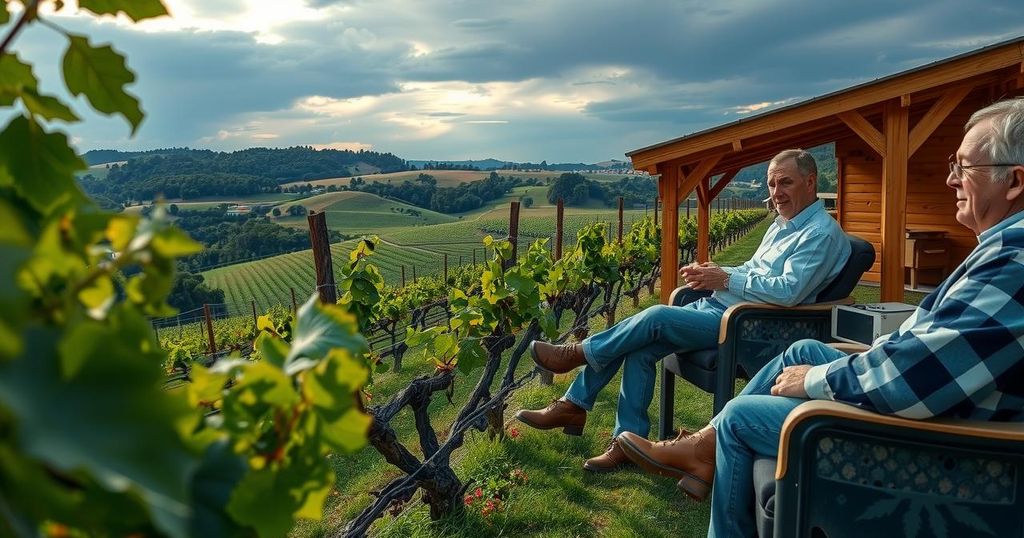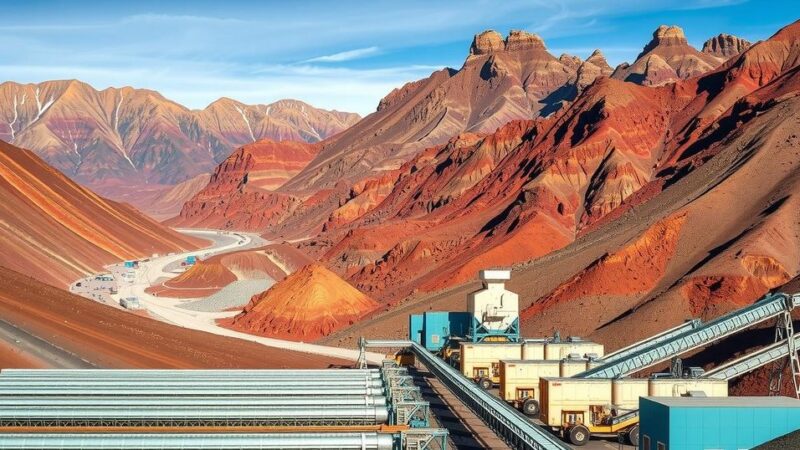Recent discussions on climate change intensified in Azerbaijan during COP 29, as developing countries united against apprehensive leaders from the U.S. and Europe. Concurrently in Mendoza, Argentina, local winemakers explored the implications of climate change on their industry, emphasizing the culture and economy intertwined with winemaking. Experts called for adaptive strategies to mitigate climate impacts, focusing on water scarcity and the need for collaboration to secure a sustainable future for viticulture.
This week, the ongoing climate discourse shifted its focus to Azerbaijan, where nations such as China and India have rallied together with developing countries against the hesitance of U.S. and European leaders in committing to substantial climate change investments. Amid the UN’s climate summit, COP 29 in Baku, world leaders at the G-20 summit in Brazil, were also addressing pressing environmental issues. During his historic visit to the Amazon, President Joe Biden expressed his commitment by allocating millions towards the preservation of the region’s rich biodiversity and declared November 17th as International Conservation Day.
In Mendoza, Argentina, a different aspect of this climate conversation unfolded as local winemakers engaged in discussions pertinent to their cherished industry. Dr. Laura Catena, a key figure in Mendoza’s wine sector, emphasized the profound connection between wine, culture, and community, noting that nearly everyone in the region has ties to winemaking. Through collaborative efforts with Mendoza’s Cuyo National University, the Catena Institute of Wine facilitated the return of the International Terroir Congress, underscoring Argentina’s emerging yet vital role in the global wine economy, which generated approximately $844 million in exports in 2021.
A significant focus during the congress was the impact of climate change on viticulture, with experts like Kees Van Leeuwen and Greg Jones elucidating the ways climate variability reshapes wine quality and production. Van Leeuwen highlighted that terroir encompasses not only soil but also climate conditions that affect the characteristics of the wine produced. Furthermore, Jones emphasized the limitations that climate shifts impose on traditional grape varieties, warning that without adaptation, regions may no longer support the cultivation of specific types of grapes, necessitating a shift to more resilient varietals.
In Mendoza, where most precious water resources are dwindling, researchers like Fernando Buscema are advocating for more efficient water usage in viticulture. Their collaboration with growers in arid regions aims to develop sustainable vineyard practices that can withstand climate pressures. Buscema also pointed out that addressing the challenges posed by climate change requires joint efforts from various stakeholders in both public and private sectors.
In summary, this week showcased the growing acknowledgment of climate change’s far-reaching effects on diverse sectors, particularly viticulture. The discussions in both Azerbaijan and Argentina signify a crucial link between global climate movements and the unique challenges faced by local communities dedicated to wine production. As industry leaders navigate these changes, the adaptability of viticulture practices will be paramount to sustaining this centuries-old tradition.
The article discusses recent developments in global climate discourse, primarily focusing on the ongoing UN climate summit COP 29 in Azerbaijan, where nations are uniting to push for essential investments in climate change mitigation. It then transitions to the Argentine province of Mendoza, a key area for winemaking, where local stakeholders are addressing the implications of climate change on their industry. Concerning perspectives from winemakers, researchers, and climatologists illustrate the unique challenges faced by this agricultural sector as it adapts to evolving environmental conditions. Through collaborative initiatives and a deep cultural connection to winemaking, Mendoza serves as a critical case study for the intersection of climate action and regional economic resilience.
The conversations surrounding climate change are paramount, emphasizing the interconnectedness of global efforts and local realities. The engagement of developing countries alongside new commitments from established nations highlights the urgency of addressing environmental concerns collaboratively. In Mendoza, the winemaking community demonstrates resilience and innovation in the face of climate challenges, showcasing the necessity for adaptive strategies to preserve their heritage and economic viability. Ultimately, the insights from this week’s dialogues are vital for shaping sustainable practices within the wine industry and beyond.
Original Source: www.forbes.com






